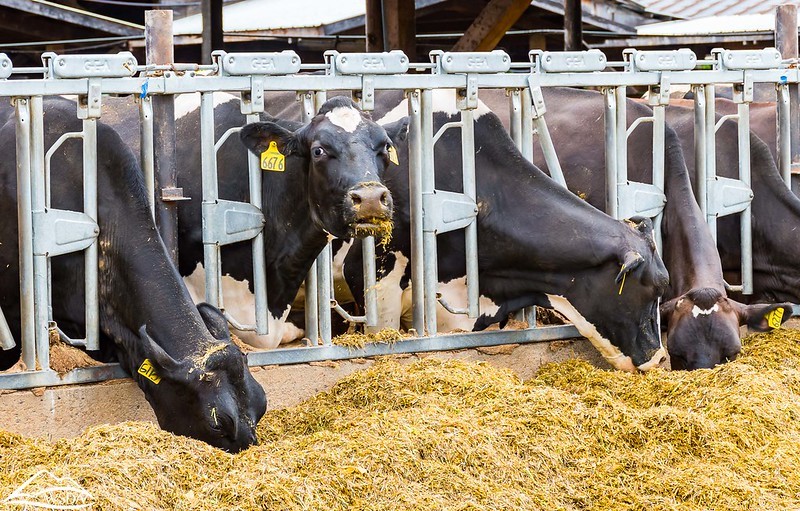Ver este comunicado de prensa en Español
Effective manure management at large livestock operations helps keep nitrates, harmful bacteria, excess nutrients and other pollutants out of surface and ground water. The Department of Ecology is proposing updates to the Concentrated Animal Feeding Operation (CAFO) water quality permit, which is how the agency oversees manure management at certain facilities.
As part of the five-year permit review cycle, Ecology is asking for feedback on revisions to this permit, which mostly applies to large dairies. A number of the proposed updates are in response to a 2021 decision from the Washington State Court of Appeals, following appeals to an earlier version of the permit.
Currently, 24 CAFOs are regulated under Ecology’s permit, out of more than 100 large CAFO facilities in the state. Ecology regulates these facilities because they have either released waste that entered surface or ground water, or they voluntarily chose to come under the permit.
"Large livestock operations must effectively manage their manure to protect drinking water, shellfish resources, and fish-bearing streams," said Vince McGowan, Ecology’s Water Quality Program Manager. "We are committed to continuing to work with livestock owners and stakeholders to ensure these facilities are using best practices to prevent pollution."
The Washington State Department of Agriculture is the principal inspector of dairies and partners with Ecology to implement this permit.
Permit Revisions
The proposed revisions are based on Ecology’s experience implementing the current permit, including inspections and enforcement actions, updated science, permit appeal decisions, and stakeholder feedback.
Ecology initially planned to propose updates to the permit in the summer of 2021, when a ruling from the Court of Appeals on the permit was issued. The agency determined it made sense to incorporate the ruling in the draft permit and hold another round of listening sessions prior to releasing the draft permit for public review.
Based on the 2021 Court of Appeals decision, Ecology is proposing a number of updates, including:
Monitoring
- Clarify the sampling actions permittees need to take if they have polluted surface water.
- Establish procedures for when and how monitoring needs to happen in areas surrounding potential pollutions sources (animals, manure storage, manure application sites), to best protect ground water from contamination.
Manure Pollution Prevention
- Pollution prevention plans are required when permittees submit their permit application and will have a comment period. Previously, plans were due to Ecology six months after permit coverage was issued.
- Revise how new lagoons should be designed, providing consistency with federal recommendations.
- Update how the distance between the lagoon liner and groundwater is measured, in response to the Oct. 25, 2018 Pollution Control Hearings Board ruling (look up the ruling, case #P17-016c)
- Update requirements for storing solid manure to best protect groundwater.
In addition, Ecology is proposing changes to a few areas of the permit:
Managing manure lagoons
- Clarify the process to improve an existing manure lagoon to better protect water quality. This includes requiring lagoon assessments be conducted by qualified experts.
Restrictions for applying manure on land
- Extend restrictions to prohibit applying manure to land that will soon become saturated based on future rain forecast. This will reduce the potential for manure to move off the field and into surface water.
Stream protection areas
- Clarify the options for protecting surface water when applying manure to land by specifying that a forested riparian buffer is one of the options to protect streams from nearby manure use. Other options include filter strips, setback areas, and earthen berms.
Ecology is also proposing to start online reporting for this permit, so the information Ecology collects from permittees, such as annual reports, is available immediately. Previously, all permit documents were submitted to Ecology on paper.
Draft permit language and SEPA documents are available for public comment until Aug. 17, 2022. Ecology has planned two public hearings on the permit, where attendees can hear a presentation from Ecology and provide verbal comments if they choose. Spanish language interpretation will be available at both events.
Tuesday, July 26, 2022 10 a.m.
Register for the morning webinar
Phone: 253-215-8782
Meeting ID: 863 0949 8365
Thursday, July 28, 2022 6 p.m.
Register for the evening webinar
Phone: 253-215-8782
Meeting ID: 865 3217 2503


